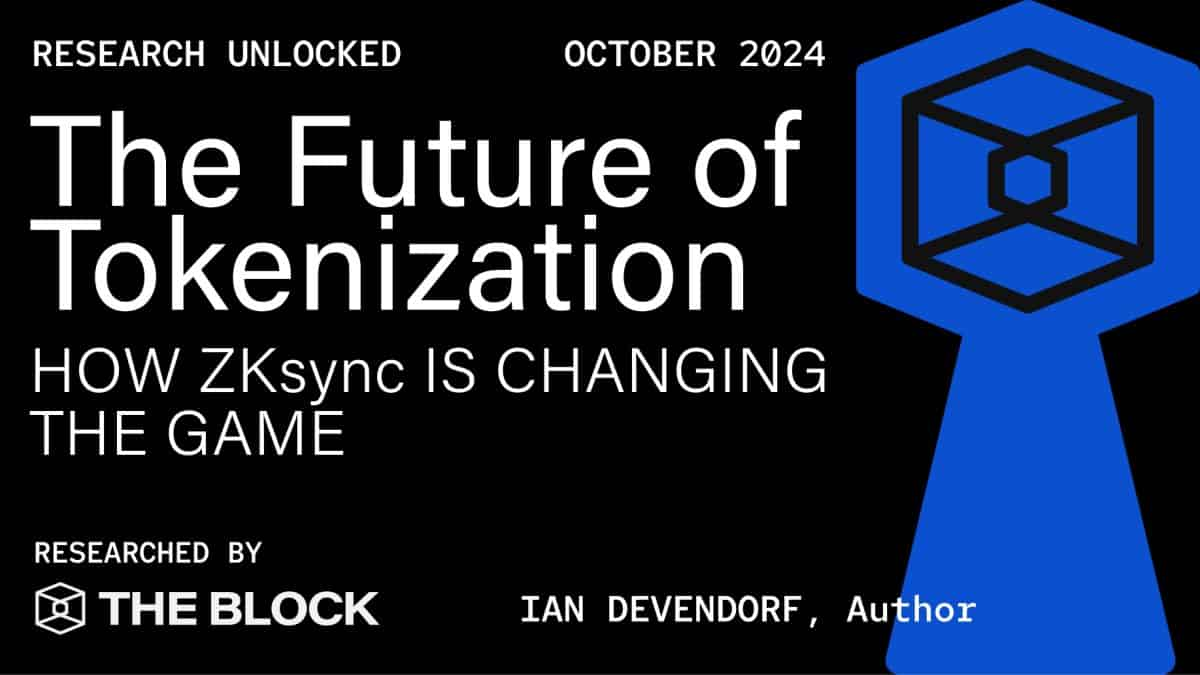The Future of Tokenization: How ZKsync is Changing the Game
The Block Research has created “The Future of Tokenization: How ZKsync is Changing the Game” commissioned by Matter Labs. To receive the full report in PDF format, please fill out the form below:

Tokenization is poised to revolutionize industries such as finance, commodities, intellectual property, and real estate by converting asset rights into digital tokens on blockchain platforms. This transformation is expected to create a market worth up to $16 trillion by 2030. Despite its immense potential, the widespread adoption of full on-chain issuance and value transfer has been hindered by challenges in scalability, customization, confidentiality, security, and interoperability.
The Elastic Chain, developed by ZKsync, addresses these challenges by offering a scalable, multi-chain network designed for institutional-grade tokenization. Its architecture dynamically adds new ZK Chains to handle increasing transaction volumes without compromising performance, effectively solving scalability issues. By allowing enterprises to tailor blockchain components to meet specific needs across various asset classes, it provides the necessary customization for different industries.
To ensure confidentiality, the Elastic Chain keeps sensitive transaction data off public networks while maintaining regulatory compliance. It enhances security by anchoring to Ethereum utilizing zero-knowledge proofs (ZKPs), offering robust protection without exposing sensitive information. Additionally, the Elastic Chain enables seamless asset movement across networks through shared ecosystem contracts and trustless communication, thus addressing interoperability concerns.
Several financial institutions have begun utilizing ZKsync’s technology. Tradeable is tokenizing over $500 million in private credit assets. Fidelity International, Sygnum, and Chainlink have partnered to tokenize $50 million of a money market fund. Deutsche Bank is developing an asset tokenization and fund management platform using this technology. Furthermore, the Buenos Aires government is implementing a decentralized digital identity protocol powered by QuarkID.
The comprehensive approach of the Elastic Chain positions it as a catalyst for the widespread adoption of fully on-chain tokenization. By overcoming technological and enterprise readiness barriers, it enables institutions to transition smoothly to blockchain-based asset management, positioning them to capitalize on the evolving regulatory landscape.”
Disclaimer: The content of this article solely reflects the author's opinion and does not represent the platform in any capacity. This article is not intended to serve as a reference for making investment decisions.
You may also like
[Initial Listing] Bitget Will List PrompTale AI (TALE). Come and grab a share of 3,480,000 TALE
New spot margin trading pair — LA/USDT!
AINUSDT now launched for futures trading and trading bots
Bitget releases June 2025 Protection Fund Valuation Report
